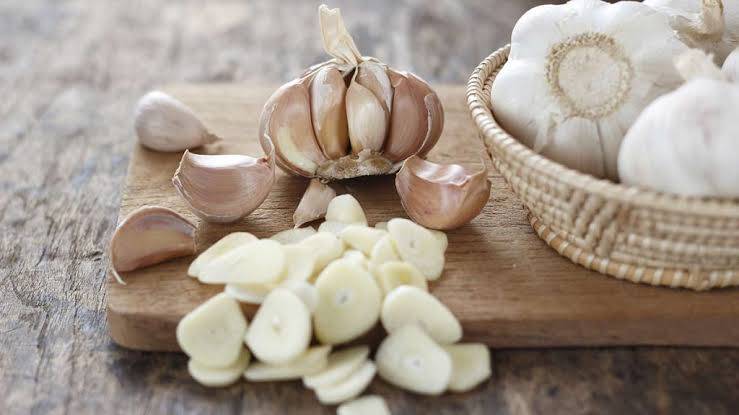The Power Of Garlic: A Natural Remedy For High Blood Pressure
High blood pressure, or hypertension, is a significant risk factor for cardiovascular diseases, strokes, and kidney failure. For centuries, traditional medicine has emphasized the importance of dietary changes and natural remedies to manage high blood pressure. One such remedy that has received considerable attention is garlic. This flavorful addition to meals has demonstrated potential as a natural treatment for controlling hypertension, with a wealth of scientific evidence supporting its effectiveness.
Among natural remedies, garlic ranks just behind turmeric in terms of research support. As of this article's publication, over 8,616 peer-reviewed studies have explored garlic's ability to prevent and improve a wide range of health conditions. The role of garlic in hypertension is particularly noteworthy, with several studies indicating that it may help lower blood pressure, especially in individuals with hypertension.
The primary compound responsible for these benefits is allicin, a sulfur-containing substance released when garlic is chopped or crushed. Allicin has been shown to offer various health benefits, including promoting vasodilation and enhancing nitric oxide production, both of which contribute to lower blood pressure. A meta-analysis of randomized controlled trials confirmed that garlic supplementation significantly reduced both systolic and diastolic blood pressure in hypertensive individuals.
On average, systolic blood pressure was reduced by 8-9 mmHg, while diastolic blood pressure dropped by 5-6 mmHg in participants with high blood pressure. These findings highlight garlic's potential as a natural adjunct to conventional hypertension treatments. The mechanism of action behind garlic's blood pressure-lowering effects is complex, involving the stimulation of hydrogen sulfide and nitric oxide production in blood vessels.
This process enhances blood flow, reducing the resistance the heart faces, which ultimately lowers blood pressure. Additionally, garlic has a mild diuretic effect, helping the kidneys eliminate excess sodium and fluid from the body, further contributing to a reduction in blood pressure. This combination of improving vascular health and reducing fluid retention underscores garlic's role in managing hypertension.
Numerous clinical studies provide compelling evidence for garlic's role in reducing blood pressure. In one large-scale trial, researchers found that garlic supplements significantly lowered blood pressure in patients with uncontrolled hypertension. Participants who took four capsules of aged garlic extract (960 milligrams) daily for three months saw their blood pressure decrease by an average of 10 points.
Another study demonstrated that individuals with high blood pressure who consumed aged garlic extract for 12 weeks experienced significant reductions in both systolic and diastolic blood pressure compared to those who took a placebo. Additionally, a randomized, double-blind study published in the Journal of Nutrition in 2016 involved 55 patients diagnosed with metabolic syndrome.
The study showed that aged garlic extract helped reduce plaque buildup in coronary arteries, highlighting its potential benefits in preventing heart disease and reducing blood pressure in patients with metabolic syndrome. Garlic's broader health benefits extend beyond its ability to lower blood pressure.
Research indicates that garlic can help improve cholesterol levels, regulate blood sugar, and reduce the risk of certain types of cancer. For instance, a study involving diabetic rats demonstrated that garlic extract improved overall health by reducing blood glucose, cholesterol, and triglyceride levels.
Another study found that garlic significantly lowered total and LDL (bad) cholesterol levels while raising HDL (good) cholesterol in type II diabetes patients. Furthermore, garlic's bioactive sulfur compounds, such as ajoene and S-allylcysteine, have been linked to cancer prevention.
Increased garlic intake has been associated with a reduced risk of various cancers, including those of the stomach, colon, and breast. Some studies suggest that garlic compounds can induce cancer cell death and slow the progression of certain cancers.
To gain the blood pressure-lowering benefits of garlic, it is recommended to consume it raw or crushed, as this activates allicin. Garlic can be added to salads, soups, or smoothies for a healthy boost. If you prefer supplements, aged garlic extract is available in various forms, including capsules and tablets, providing a more concentrated dose of active compounds.
The typical recommended dosage for managing blood pressure is 600-1,200 mg of aged garlic extract per day, but it is always best to consult a healthcare provider before starting supplementation. In conclusion, garlic offers significant potential in managing high blood pressure, thanks to its active compounds, particularly allicin, which improve blood vessel function and reduce vascular resistance.
While garlic can be a beneficial addition to a heart-healthy diet, it should complement—not replace—conventional antihypertensive treatments. As always, individuals should consult with a healthcare provider before making any changes to their treatment regimen.
The scientific evidence supporting garlic's effectiveness in reducing blood pressure is compelling, and its potential benefits extend beyond cardiovascular health. As research continues to uncover the full range of garlic's health benefits, it is clear that this humble ingredient deserves a place in our hearts—and our diets.


